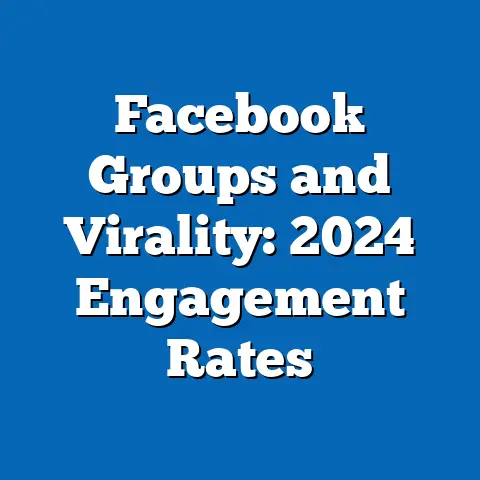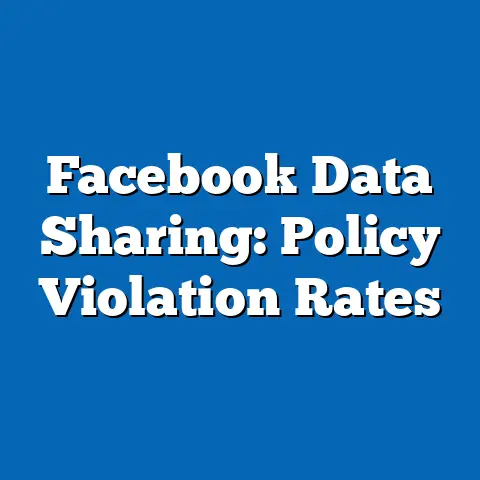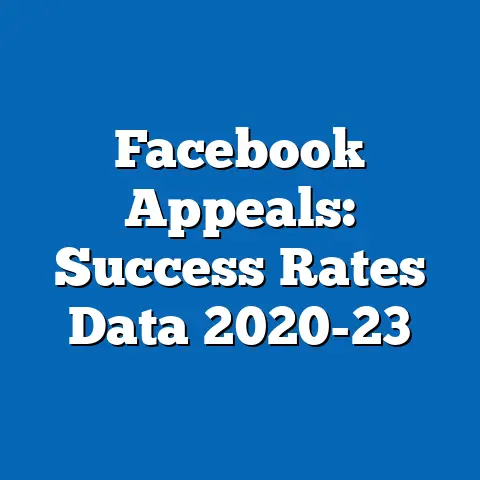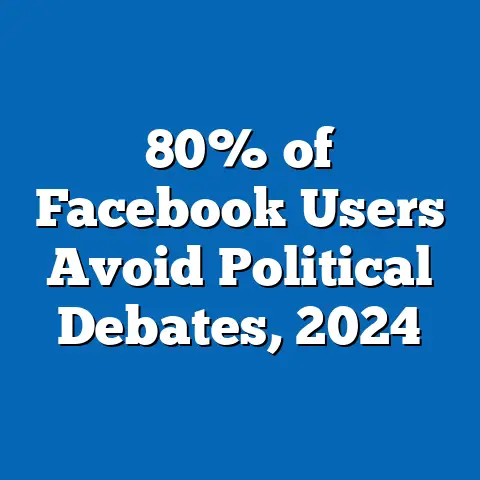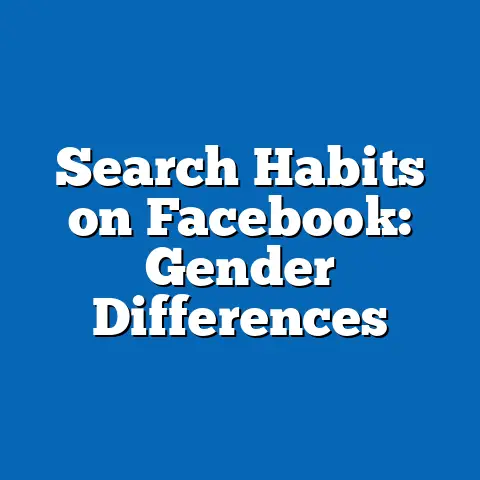Data Breaches and Facebook Trust Levels
In an era where personal data is often referred to as the “new oil,” it is a bitter irony that millions of users continue to entrust their most intimate details to platforms like Facebook, even as data breaches expose their vulnerabilities with alarming frequency.
This paradox—a deep reliance on social media coupled with eroding trust—reflects a complex interplay of demographic trends, core beliefs about privacy and technology, and varying levels of political engagement.
As we delve into the relationship between data breaches and trust in Facebook, we uncover not just a technological issue, but a cultural and political phenomenon shaped by distinct demographic groups.
This article examines the intersection of data breaches and trust levels in Facebook, analyzing the demographic makeup of affected users, their core beliefs and values, voting patterns, and political engagement.
It explores how these factors distinguish certain groups from others in their response to privacy scandals.
Supported by empirical data, polling statistics, and demographic breakdowns, this analysis also places the issue within a broader historical and social context of digital dependency and privacy concerns.
The Scope of Data Breaches: A Growing Crisis
Data breaches have become a defining feature of the digital age, with Facebook (now Meta) often at the center of major scandals.
The 2018 Cambridge Analytica scandal, where data from up to 87 million users was improperly accessed for political advertising, marked a turning point in public awareness of privacy risks.
Subsequent breaches, such as the 2021 leak of personal information from 533 million users across 106 countries, have only deepened concerns.
These incidents are not isolated; they reflect a broader trend of escalating cyber vulnerabilities.
According to the Identity Theft Resource Center (ITRC), data breaches in the United States alone affected over 1.8 billion records between 2017 and 2022.
Facebook’s repeated involvement in such incidents—coupled with fines like the $5 billion penalty from the Federal Trade Commission (FTC) in 2019—has made it a lightning rod for debates over data privacy.
Yet, despite these breaches, user retention on the platform remains remarkably high.
As of 2023, Meta reported 3.03 billion monthly active users globally, with 2.04 billion daily active users on Facebook specifically.
This raises critical questions: Who continues to trust Facebook, and why?
How do demographic factors and political beliefs shape these trust levels?
Demographic Composition of Facebook Users
Facebook’s user base is demographically diverse, spanning generations, income levels, and cultural backgrounds.
According to Pew Research Center data from 2023, 68% of U.S.
adults use Facebook, with significant variation across age groups.
Usage is highest among 30-49-year-olds (75%), followed by 18-29-year-olds (70%), while only 45% of those aged 65 and older are active on the platform.
Gender differences are minimal, with 69% of women and 67% of men using the platform.
However, racial and ethnic breakdowns reveal disparities: 73% of Hispanic adults and 70% of Black adults use Facebook, compared to 67% of White adults.
Education and income also play a role—72% of users with a college degree are on Facebook, compared to 63% of those with a high school diploma or less.
Geographically, usage is higher in suburban (71%) and urban (69%) areas than in rural ones (62%).
These demographic patterns suggest that trust in Facebook—or at least reliance on it—cuts across a wide swath of society, though certain groups may be more exposed to data breaches due to higher usage rates.
Core Beliefs and Values: Privacy vs. Convenience
The tension between privacy concerns and the convenience of social media lies at the heart of trust in Facebook.
A 2022 survey by the Pew Research Center found that 64% of U.S.
adults are concerned about how companies like Facebook handle their personal data, yet only 28% have taken concrete steps like deleting their accounts or adjusting privacy settings post-breach.
This discrepancy highlights a core belief among many users: the benefits of connectivity and social engagement often outweigh the risks of data exposure.
Demographically, younger users (18-29) are more likely to prioritize convenience over privacy, with only 55% expressing high concern about data breaches compared to 70% of those aged 50 and older.
Education also shapes attitudes—college-educated users are more likely to be aware of privacy risks (68%) but also more likely to remain on the platform due to professional networking needs.
Politically, beliefs about privacy often align with broader ideological divides.
Liberals, who often advocate for stronger government regulation of tech companies, are more likely to distrust Facebook’s data practices (72%) compared to conservatives (58%), according to a 2021 Gallup poll.
However, both groups continue to use the platform at similar rates, suggesting that practical dependency overrides ideological concerns.
Voting Patterns and Political Engagement
Facebook’s role in political discourse amplifies its significance in the wake of data breaches, particularly given its history of misuse in electoral contexts like the 2016 U.S.
presidential election.
Demographically, politically engaged users—those who discuss politics online or follow political news—tend to be more aware of data breaches but also more entrenched in their usage.
A 2022 study by the American National Election Studies (ANES) found that 78% of frequent political posters on social media use Facebook, compared to 62% of less politically active users.
Voting patterns reveal further nuances.
Among 2020 U.S.
voters, 71% of Democrats and 67% of Republicans reported using Facebook, per Pew Research.
However, trust levels diverge: only 38% of Democrats trust Facebook to protect their data, compared to 52% of Republicans.
This gap may stem from differing narratives—Democrats often view tech companies as complicit in misinformation, while Republicans are more likely to see breaches as isolated failures rather than systemic issues.
Political engagement also intersects with age and education.
Younger, college-educated users are more likely to engage politically on Facebook (65% of 18-29-year-olds with a degree), but they are also more skeptical of the platform’s intentions, with only 35% expressing trust in its data security practices.
In contrast, older, less-educated users show higher trust levels (55% among those 65+ with no college degree) but lower political engagement.
Policy Positions on Major Issues: Regulation and Accountability
Data breaches have fueled debates over tech regulation, with Facebook users holding varied policy positions based on demographic and political factors.
A 2023 YouGov poll found that 62% of U.S.
adults support stricter regulations on social media companies, including mandatory data protection standards and penalties for breaches.
Support is higher among Democrats (70%) than Republicans (52%), reflecting ideological differences over government intervention.
Age also influences policy stances.
Younger users (18-34) are more likely to favor regulation (68%) but also support innovation-friendly policies that avoid overreach, while older users (55+) prioritize punitive measures like fines (75%).
Racial and ethnic groups show less variation, though Black and Hispanic users are slightly more supportive of regulation (65% and 64%, respectively) than White users (60%), possibly due to higher concerns about targeted misuse of data.
Education shapes attitudes toward accountability.
College-educated users are more likely to advocate for transparency measures, such as public disclosure of breach details (72%), while those with less education focus on immediate protections like free credit monitoring for affected users (67%).
These differences highlight a broader divide in how users conceptualize solutions to data breaches.
Distinguishing Features Compared to Other Groups
Facebook users’ responses to data breaches distinguish them from users of other platforms like Twitter (now X) or Instagram, as well as non-users of social media.
Unlike Twitter, which attracts a younger, more politically vocal demographic (median age 40, with 42% identifying as liberal per Pew Research 2023), Facebook’s broader user base includes more moderate and older individuals less likely to abandon the platform post-breach.
Instagram users, primarily under 35 (71% of 18-29-year-olds), prioritize visual content over political engagement, making them less reactive to privacy scandals unless directly affected.
Non-users of social media, who make up 31% of U.S.
adults per Pew Research, stand in stark contrast.
Often older (48% are 65+) and less tech-savvy, they cite privacy concerns as a primary reason for avoiding platforms like Facebook (59%).
This group’s outright rejection of social media underscores a key difference: while many Facebook users express distrust, their dependency on the platform for social or professional reasons often prevents disengagement.
Politically, Facebook users are more evenly split across ideological lines (34% liberal, 36% moderate, 30% conservative) compared to Twitter users (42% liberal, 25% conservative).
This balance makes Facebook a unique battleground for privacy debates, as it hosts diverse perspectives on regulation and accountability.
Intersections with Age, Education, Race, and Religion
Trust in Facebook and reactions to data breaches are deeply tied to intersecting demographic factors.
Age remains a critical determinant—younger users are more likely to be aware of breaches (78% of 18-29-year-olds) but less likely to change behavior, with only 22% reducing usage post-scandal.
Older users, conversely, report higher trust (55% of 65+) but are less likely to understand the technical implications of breaches.
Education amplifies awareness but not necessarily action.
College graduates are more likely to read privacy policies (45%) than those with a high school diploma (28%), yet both groups show similar retention rates on Facebook (around 70%).
Race and ethnicity reveal subtler trends—Black and Hispanic users express higher concern about data misuse (68% and 65%) compared to White users (60%), possibly due to historical experiences with surveillance or discrimination, yet their usage rates remain high.
Religion adds another layer.
Evangelical Christians, who make up 24% of U.S.
Facebook users per Pew Research, are more likely to trust the platform (58%) compared to religiously unaffiliated users (40%).
This may reflect broader cultural values around forgiveness or lower engagement with tech policy debates among religious conservatives.
Areas of Consensus and Division Within User Coalitions
Despite demographic differences, there is broad consensus among Facebook users on the need for better data protection.
A 2022 Harris Poll found that 76% of users across political and age groups agree that companies should face harsher penalties for breaches.
Similarly, 71% support user control over data, such as opt-out mechanisms for data sharing.
Divisions emerge over solutions.
Liberals and younger users advocate for systemic reforms like breaking up tech monopolies (65% support among 18-34-year-olds), while conservatives and older users prefer market-based solutions or individual responsibility (58% of 55+ users believe users should protect themselves).
These splits reflect deeper ideological divides about the role of government versus personal agency in addressing privacy issues.
Geographic divides also play a role.
Urban users, who often have higher exposure to tech industries, are more likely to demand regulation (68%) compared to rural users (54%), who may view breaches as less immediate threats.
These tensions highlight the challenge of building a unified response to data breaches.
Historical and Social Context: The Evolution of Digital Trust
The relationship between data breaches and trust in Facebook must be understood within the broader historical shift toward digital dependency.
In the early 2000s, social media was heralded as a democratizing force, with privacy concerns secondary to innovation.
The 2013 Edward Snowden revelations about government surveillance marked a turning point, raising public awareness of data vulnerabilities—a trend amplified by Facebook’s subsequent scandals.
Socially, the rise of smartphones (84% of U.S.
adults own one per Pew Research 2023) has made platforms like Facebook integral to daily life, from family communication to job networking.
This integration explains why trust levels, though declining (only 27% of U.S.
adults trust Facebook with their data per Gallup 2023), do not translate into mass exodus.
The platform’s role as a cultural institution—despite breaches—mirrors historical patterns where convenience often trumps risk, as seen with early banking or credit card adoption.
Politically, the post-2016 era has linked data breaches to electoral integrity, with 54% of Americans believing social media influences elections unfairly (Pew Research 2022).
This context frames trust in Facebook as not just a personal issue, but a democratic one, shaping how different groups perceive and respond to breaches.
Patterns and Trends: A Persistent Paradox
Several key trends emerge from this analysis.
First, data breaches have a limited impact on user behavior, with only 12% of affected users deleting their accounts post-scandal (Pew Research 2022).
This resilience is driven by demographic factors—younger, more connected users are less likely to leave, while older users often lack alternatives.
Second, trust levels are declining but unevenly distributed.
Polls show a steady drop from 41% trust in 2018 to 27% in 2023 (Gallup), with steeper declines among liberals and educated users.
Yet, usage remains stable, suggesting a pragmatic acceptance of risk.
Third, political and cultural factors shape responses more than the breaches themselves.
Conservatives’ higher trust levels contrast with liberals’ skepticism, while racial and religious identities influence perceptions of data misuse.
These patterns indicate that trust in Facebook is less about objective security and more about broader worldviews.
Conclusion: Navigating the Trust Deficit
The irony of Facebook’s enduring popularity amid recurring data breaches encapsulates a defining tension of the digital age: the clash between connectivity and security.
Demographically, users span a wide spectrum, from tech-savvy youth to older, less skeptical adults, yet most share a reluctant dependency on the platform.
Their core beliefs—balancing privacy against convenience—shape varied responses, as do voting patterns and political engagement, which often reflect deeper ideological divides.
Compared to other groups, Facebook users stand out for their persistence, unlike non-users who reject social media outright or Twitter users who skew younger and more reactive.
Intersections of age, education, race, and religion further complicate trust levels, revealing both consensus on the need for protection and division over solutions.
Historically, this mirrors past adoptions of risky but transformative technologies, underscoring a societal tendency to prioritize utility over caution.
Data breaches will likely remain a fixture of the digital landscape, with trust in platforms like Facebook continuing to erode yet failing to drive significant behavioral change.
As regulation debates intensify—supported by 62% of Americans (YouGov 2023)—the challenge lies in addressing diverse user needs while curbing systemic vulnerabilities.
Until then, the paradox of trust and dependency will define Facebook’s relationship with its billions of users, a microcosm of broader struggles over privacy in the 21st century.

